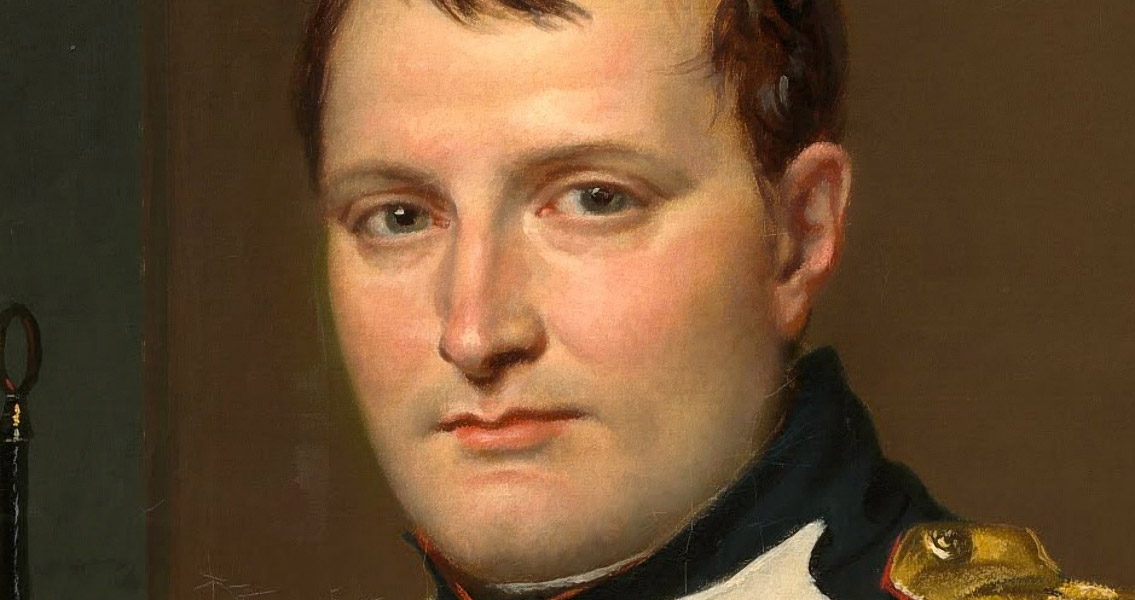<![CDATA[His armies devastated in war with Russia and his European empire all but destroyed, Napoleon Bonaparte was forced to renounce his throne and agree to exile in Elba in the Treaty of Fontainebleau, signed on 11th April, 1814. As a final, humiliating concession to the man who had once been the leader of 70 million Europeans, Napoleon retained the title of Emperor - of the small Mediterranean island of Elba and its 12,000 or so inhabitants. Born in Ajaccio, Corsica in 1769, Napoleon would go on to become one of the most important leaders in the history of Europe, a ruthless figure who revolutionised the continent. He trained at the Paris military academy, graduating early as a second lieutenant of artillery. In the tumult and chaos of revolutionary France the young, ambitious soldier soon rose through the military ranks while also gaining vital political influence. In 1795 Napoleon's troops saved the French government from counter-revolutionary forces, winning him the support of the Directory in the process and swiftly seeing him named commander of the Army of the Interior. In 1796 Napoleon took charge of the Army of Italy, a seemingly bedraggled force, which the young military leader turned into a formidable fighting unit. Under his leadership the army won a series of massive victories against the forces of the Austrian Empire, leading to a significant expansion of the French empire. Internal strife continued to blight France, coinciding with a series of damaging defeats including one for Napoleon himself at the Battle of the Nile. Nevertheless, a skilled opportunist with a talent for politics, Napoleon instigated a coup which saw him become the head of a military dictatorship in 1799, and in 1804 he declared himself Emperor of France. Military campaigns became the driving force of the new Emperor's reign. When defeat at Trafalgar in 1805 forced Napoleon to scrap plans to invade Britain, he focused his attentions on the European mainland, seizing territories across the continent so that by 1810 Holland, Italy, Naples, Sweden, Spain and Westphalia were all governed by loyalists to the French Empire. The Napoleonic Empire had a significant impact on European society and culture. Echoes of the reforms in voting systems and legal codes instigated by the French emperor can still be felt today, while the eradication of feudalism across the continent facilitated the transition into modern social structures. The Napoleonic Code, which among other things guaranteed religious tolerance, remains the keystone of French civil law. Ultimately, the attempt to invade Russia in 1812 proved too much for Napoleon's empire. His forces became increasingly stretched, before getting stranded in the brutal Russian winter. His armies were forced to retreat from Moscow, the sign of weakness inspiring other powers in Europe to rebel against Napoleonic rule. By 1814 he was defeated, and forced into accepting the terms of the Treaty of Fontainebleau. By then 45 years old, Napoleon arrived on Elba in May 1814. He set about his job of ruling the island, working to improve its infrastructure and overseeing the construction of several iron mines, all while under the watch of Austrian and French guards. Nevertheless, he stayed informed of events in Europe, and soon plotted his return. In one of the most audacious escapes in history, the former French Emperor somehow snuck off the island with a small military force in February 1815, and set off for France. The French army sent to intercept him on the country's mainland quickly joined his ranks, and he returned to Paris. His exile had lasted less than a year, and popular support meant he was soon able to retake the French throne and embark on the 100 days which would ultimately end in his final defeat at Waterloo. ]]>
Napoleon Dethroned and Exiled
